'The Killer,' Sponsored by...
David Fincher is back in his playpen, with a dark and chilling thriller.


There’s a scene in The Survivor where Nazi soldier and detestable dirtbag, Schneider (Billy Magnussen), shares his startlingly revealing thoughts on the war with inmate Harry Haft (Ben Foster): “[a]ll empires are built on the destruction of other people. The Nazis weren’t the first to expel the Jews. It’s been done by every Christian country over the last 1000 years…but you didn’t fight back, did you?”
As a Jewish person well aware of the genocide that killed 6 million Jews and the impact that had on generations of survivors, this is a somewhat unsettling question to ponder.
The Survivor tells the unique story of Haft, a young Jewish man interned at the Auschwitz concentration camp at 16. Haft is confronted with a choice: either die like his fellow friends and family or fight fellow inmates to the death in a makeshift boxing ring set up by twisted Nazi officer, Schneider, for-profit and the soldiers’ sick pleasure. Cruelly enough, fighting back is exactly what Harry Haft has to do to survive the Nazi concentration camps.
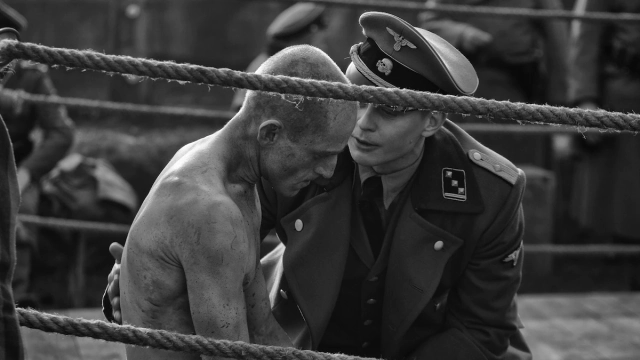
The film follows Harry through his struggles in the camps, told in flashback, up through the present day in Brooklyn, 1949, as he looks to make a buck as a boxer. He searches for Leah (Dar Zuzovski), his partner from before the war whom he lost contact and wishes to reunite with. Each time period is visually distinct. Harry’s time in Auschwitz is depicted in black & white, while ‘present-day’ Brooklyn is presented in a variety of warm, rich colors. As a result of these choices, Brooklyn is vibrant and alive. In contrast, Harry’s morbid past is shaded in black and white, distorted by shadows and conflict. We see the concentration camp as nightmarish, a time of stark delineations, good versus evil, and kill or be killed, with no room for ambiguity. Survival being the only thing that mattered.
There’s no hiding the horrors of war. In one of the more disturbing scenes early in the film, Haft is seen dumping the dead bodies of Jewish inmates into fiery pits, a metaphorical burning inferno. From this inferno comes Lucifer in the guise of Schneider, offering Harry the chance to fight or suffer the same fate as those he buries. “I want you to become an entertainer,” the Schneider says to Harry.
Meanwhile in ‘present-day’ 1949, an eager reporter named Emory Anderson, played by Peter Sarsgaard, wants to tell the story of boxer Harry, ‘the survivor of Auschwitz,’ and how he managed to escape the concentration camps during World War 2. Harry agrees to the story only after negotiating for Peter to help him find his lost love Leah. Harry is immediately scorned and ostracized by those in the religious community who feel exploited by Harry’s recounting in the newspaper.
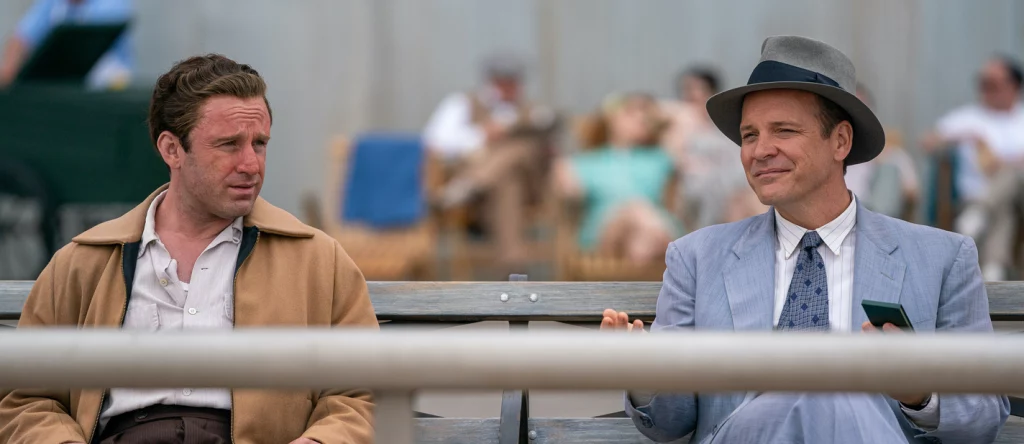
Eventually, Harry gets a shot at fighting Rocky Marciano, a champion boxer. He goes through rigorous training with the help of Bill ‘Pepe’ Miller and Charley Goldman, supporting characters played by John Leguizamo and Danny Devito respectively, who add some humor and personality to Harry’s training sequences.
Harry continues to obsess over finding Leah. He boxes for her and the possibility that she’s alive. It’s what drove him to survive at Auschwitz and many years later in Brooklyn. “She saved my life,” he says. The ending is surprising and very touching.
That being said, there were some missteps in this inspired, but flawed film. I would have liked to have seen more of Harry’s relationship with Leah in the film. Her character’s absence looms somewhat large. Most of The Survivor is spent on Harry training and fighting in the ring and some very tense exchanges with Schneider. The issue of how Harry finally escaped the death camps is also somewhat unclear.
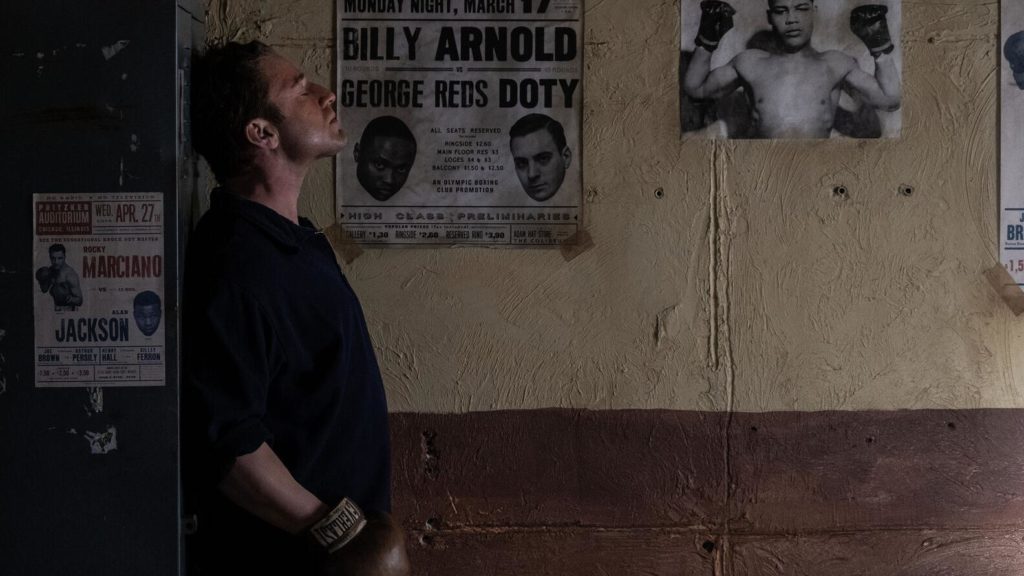
I found Schneider to be a bit one-dimensional. The audience is aware what he’s doing is wrong and the atrocities he’s participated in clearly paint him as a reprehensible figure. And the notion that Nazi’s lacked humanity is agreed upon by many. But I would have liked to have learned more about Schneider’s motivations and potential cognitive dissonance. Him being just a cardboard cut-out ruthless, murderous authoritarian foot soldier adds little to our understanding of the Nazi phenomenon.
We learn much more about Harry which makes him a compelling, sympathetic figure. Some of that is due to writing, but a large part of it has to do with Ben Foster’s performance. Harry feels lived and well-understood. I’ve been critical of Ben Foster in the past, not necessarily buying into some of his previous characters. I’ve often found his style of acting distracting and overly done, often drawing attention away from the films he is a part of. But he’s truly invested here. His Polish/Yiddish accent is impressive. He also lost considerable weight for the role to more accurately depict Harry’s condition in the camps. I was reminded of Raging Bull. Both characters are boxers who gained significant weight in the latter halves of their lives, unable to hide their bloated faces and pudgy mid-sections.
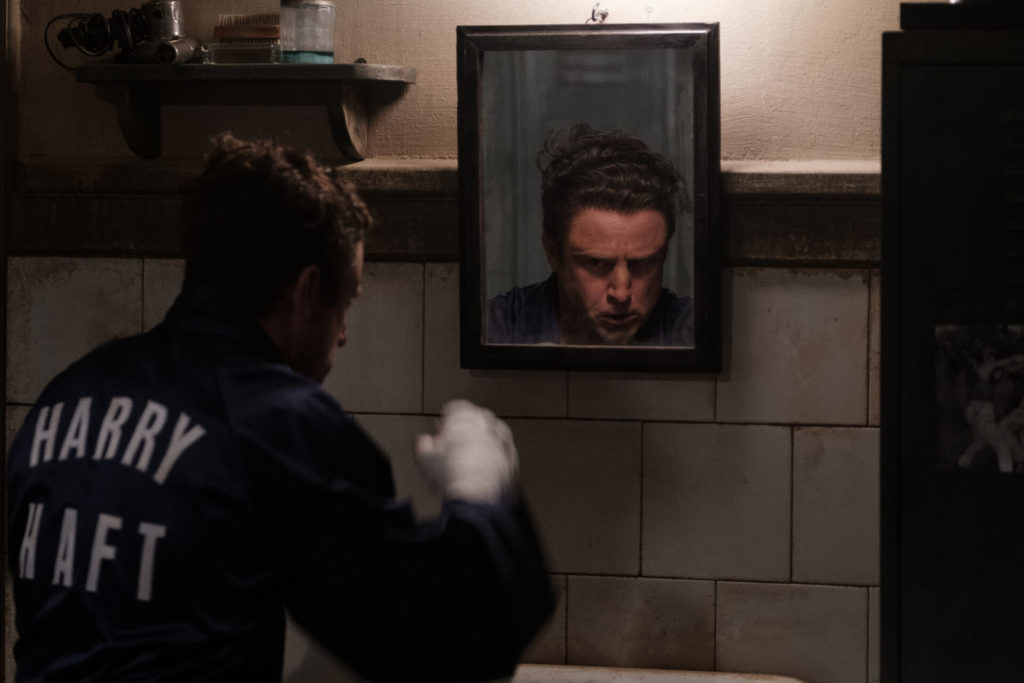
The Survivor is based on the memories of Harry Haft. The film is actually adapted from a book written by Haft’s son, Alan. [Spoiler alert] Toward the end of the movie, Harry struggles to connect with his son and share with him the horrors he went through. By his son writing a book about his dad, I’m led to believe their relationship improved, becoming deeper and more meaningful.
Additionally, Director Barry Levinson, known for such films as Diner and Rain Man, does an impressive job of showing triggering elements of Harry’s PTSD. In addition to nightmares, mundane things like a carnival barker on the street or the peephole on a door can trigger traumatic recollections of his time in the camps. Despite overcoming the odds and living to tell his tale in America, this trauma is not something he overcomes for film convenience but, rather, something he realistically struggles with for the rest of his life.
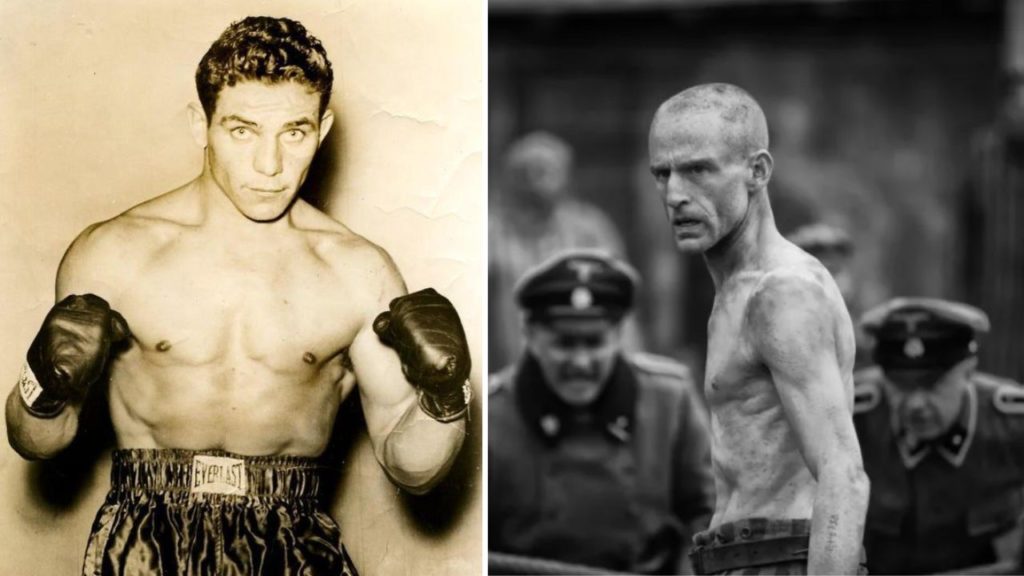
With anti-Semitism and racially motivated hate crimes on the rise today, I think The Survivor is an important reminder of the inhumanity a society and its people are capable of inflicting. But more importantly, how in the face of such horrors, the power of the human spirit prevails.
The Survivor is a love story, a sports film, and a biographical, war-time drama all rolled into one. While sad, and at times disturbing, it’s a fascinating story that’s both educational and inspiring.
Related lists created by the same author
David Fincher is back in his playpen, with a dark and chilling thriller.
Related Movie / TV / List / Topic
Keep scrolling to find names that should become part of your watchlist!